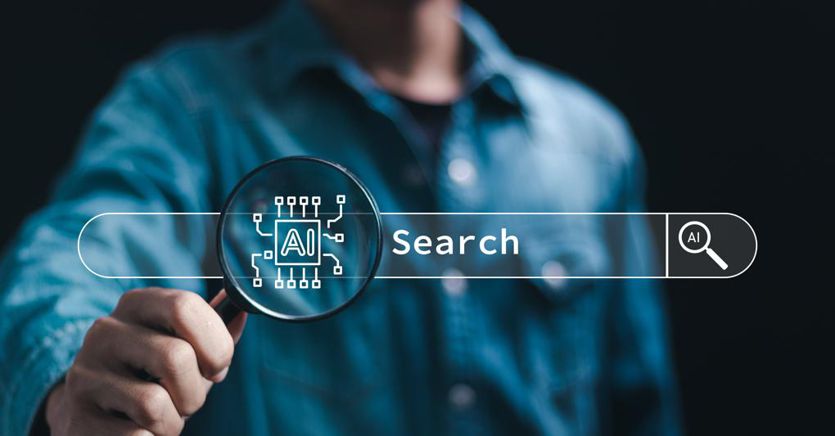Listen to the audio version of the article
There are those who, a small handful of technology enthusiasts in truth, now look for information online almost exclusively in this way.
Through artificial intelligence.
Some experts call it the future of search. Instead of using the classic search engine – almost always Google – use the new generative artificial intelligence tools to find useful answers and information. Objective: to be faster in achieving the result, but also to be able to do things that are impossible with classic engines. A Gartner report released a few days ago estimates that half of people will search via AI, rather than engines, by 2028. Perhaps it is an exaggeration, but it is likely that we are nevertheless at the beginning of a new era. The fact is that all the big names are aiming for it, even integrating new features into traditional engines in a strong (Microsoft) or prudent (Google) way.
The novelty is so disruptive that a space is also being created for new entrants. Among these, Perplexity AI stands out, a startup in which Jeff Bezos (creator of Amazon) and Nvidia, the giant of chips that power generative artificial intelligence, invested.
To understand how good this “search 2.0” (as some call it) is, we tested Perplexity AI against Google Bard and Microsoft’s Copilot. They are all free tools.
The overall opinion is that yes, you save time for a lot of research compared to the traditional method. Instead of putting together different search results, we have the “prepared food” with direct information. It is also true, however, that for an in-depth analysis of those results, we cannot stop at what the AI tells us and we must then consult the sources, make other prompts or even return to the traditional engine. In short, sometimes what AI offers can be enough; other times, for more complex research, it is a useful starting point.
Tourist research
A first example of proven research. “Recommend me the best places to see in Athens from 12 to 14 August and then an island to visit, for the next five days, suitable for a family with small children and a beautiful sea.” On an engine it would mean comparing what different sites tell us and trying to find a match with our needs.
Let’s see how the AI fares.
Perplexity first of all asks us a question to better understand our interests, to refine the prompt. It is one of the special features of this AI. Another is the possibility of sharing the research done with third parties and thus allowing us to work on it together for subsequent refinements. In short, research becomes a shared job with prompts from multiple people together. For tourism, Perplexity offers us a page with the main attractions in Athens and recommended beaches for children. Too bad it also suggests “another interesting option, with miles of hiking trails for older children.” Luckily we wrote that they were small. CoPilot is more synthetic, but more precise. Three options in Athens and a couple of beaches, with activities suitable for young children. More comprehensive Bard and also precise. He even creates an itinerary for us (day 1: arrival in Athens, visit…etc). It also gives advice on traveling with young children. Also adds images in the response. He is the winner on this quest.
Product research
Let’s change needs. We want to buy a pair of running shoes. Even here on Google we would probably be forced to compare different search results and products to understand the ones best suited to our specific needs. “Recommend me a pair of running shoes and where to buy them, suitable for training on asphalt, for around 50 km a week with sessions between 10 and 12 km. Wide foot. Neutral support. The goal of running is health, not maximum performance”. Precise Perplexity, suggests models and argues; plus he gives advice on the matter. Synthetic, as usual, Copilot, even too much; furthermore he gives advice that is not very in line, more suitable for those looking for speed. Therefore rejected for this research. Complete the answer with ads of shoes to buy. Bard is also concise, but more precise than Copilot and is also the one that offers the most ideas on where to buy the recommended shoes. Perplexity AI wins.
Medical research
Let’s now tackle a thorny topic. “Are there studies that correlate the onset of diseases with proximity to the motorway?”. The half page of Perplexity, with links to sources (studies) is a good starting point and could even be enough to have a general confirmation that yes, there is a correlation. Bard also confirms, but does not cite the studies. We have to ask him with another prompt and he lists them for us. But without links (which we also asked to include). Copilot is very concise, it does not cite the studies but links to the Veronesi Foundation to confirm the correlation. Winner: Perplexity AI. Even compared to a search on Google, where in fact only the first result offers some immediate answer (a Focus article), although not as complete. Other results are either not relevant or technical (directly the study), to be studied.
